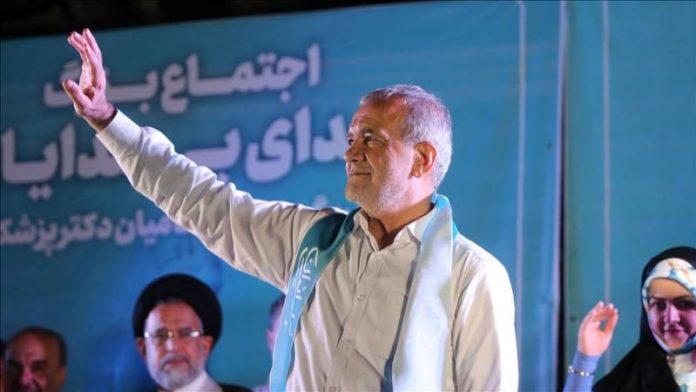Iran’s Masoud Pezeshkian has emerged victorious in the second round of the country’s presidential election, according to the Interior Ministry.
The election followed the early death of ultraconservative President Ebrahim Raisi in the helicopter crash. However, last week’s first round of elections was marked by a historically low turnout, with more than 60 per cent of Iranian voters abstaining from the early election of Ebrahim Raisi’s successor. Mohammad Bagher Ghalibaf, Saeed Jalili, Masoud Pezeshkian and Mostafa Pourmohammadi contested for the presidency.
Masoud Pezeshkian gained more than 16 million votes, while Saeed Jalili won more than 13 million of the approximately 30 million votes cast. The election commission spokesman said voter turnout was 49.8 per cent, according to AFP.
By gaining majority of the votes cast on Friday, Pezeshkian has become Iran’s next president, the Interior Ministry informed.
The election comes amid heightened regional tensions over the war in the Gaza Strip, border clashes between Israel and Lebanon, as well as a dispute with the West over Iran’s nuclear programme. Despite, the victory of Pezeshkian could not only promote a pragmatic foreign policy, but also ease tensions around stalled talks with major powers to revive the 2015 nuclear deal, analysts said. Nevertheless, he publicly said he had no intention of confronting Iran’s ruling elite of clerics and security policy advocates.
Pezeshkian has also vowed to loosen long-standing restrictions on Internet use and to oppose police patrols that impose mandatory hijab on women. The issue has become a much-debated issue since the death in custody of Mahsa Amini in 2022, when the 22-year-old Iranian Kurd detained for an alleged dress code violation and her death sparked months of unrest across the country.
The candidacy of Pezeshkian has raised hopes among Iranian reformers after years of dominance by the conservative and ultraconservative camps. Yet there are doubts whether the next president is unlikely to make significant changes to policy on the nuclear programme or alter support for militia groups across the Middle East. Despite, the president runs the government on a daily basis and has the power to influence the tone of Iran’s foreign and domestic policy.
